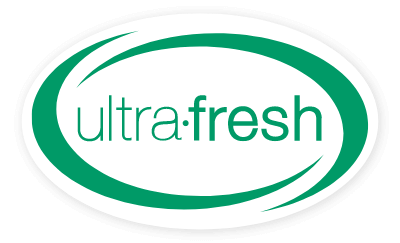Antimicrobial Agents Definition:
An antimicrobial agent is defined as any substance that kills or inhibits the growth of microorganisms (microscopic organisms).
Antimicrobial agents can be naturally occurring or synthetic; they can contain chemical compounds or physical agents that interfere with the growth and reproduction of problematic and unwanted organisms like bacteria, fungi, viruses, and parasites.
Learn more about the difference between antibacterial vs antimicrobial agents.
[caption id="attachment_2688" align="aligncenter" width="800"]

What are antimicrobial agents? They protect products from microbial growth.
How do Antimicrobial Agents Work?
Antimicrobial agents disrupt the vital life processes of microorganisms, eliminating microbial growth and preventing their reproduction.
Ultimately, antimicrobial additives keep products cleaner between routine cleanings. They protect against unwanted odors and staining, enhance longevity and help increase the quality of finished goods.
Antimicrobial agents are most commonly applied during the manufacturing step to become a durable, built-in feature.
Additives to prevent bacterial and fungal growth are also used to treat intermediate materials (adhesives, latex, pigments, etc.) while in transport and during storage.
This is even more important in warmer climates and during hot summer months when these materials are prone to microbial spoilage.
Generally, antimicrobial agents are incorporated into existing manufacturing processes so that no special equipment or extra steps are required.
The antimicrobial additive becomes a permanent feature and begins to work as soon as microbes come into contact with the product.
Learn more about how antimicrobial products work.
Are Antimicrobial Additives Safe?
Antimicrobial agents are strictly controlled in order to ensure they are safe for consumer end-use products and the environment. However, manufacturers of antimicrobial additives know the importance of product safety and build in added measures of protection. As a result, newer, greener, safer and more effective alternative actives and formulations are always being developed and analyzed.
In the United States, antimicrobials additives are overseen by the Environmental Protection Agency (EPA). First of all, antimicrobial agents must be registered with the EPA in order to be allowed for sale.
To receive registration, extensive data on chemistry, toxicology and efficacy must be submitted by the additives manufacturer. After an intense review process, an antimicrobial agent is approved only if it passes all safety, environmental and performance requirements.
Similarly, in Europe, antimicrobial agents must be listed with the Biocidal Products Regulation (BPR) in order to be used in products manufactured or exported into any of the EU countries.
Many other countries have strict regulations surrounding antimicrobial agent usage. Therefore, it is important that suppliers of antimicrobial additives are knowledgeable about global regulatory landscape.
Read more about what to look for when researching which antimicrobial company to work with.
Learn more about us or contact us for more information.
More Interesting Articles:
- 3 Ways Antimicrobials Help with Conservation
- Antimicrobial Socks: What They Are & Why You Need Them
- Antimicrobial Textiles: The Benefits
- More blog articles...
